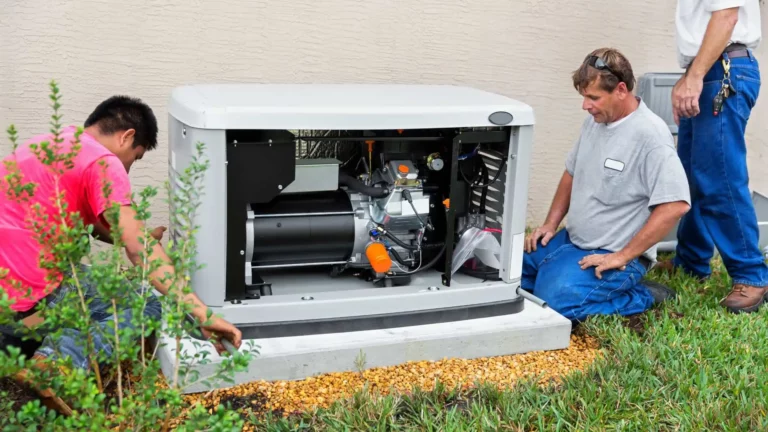Extreme weather can make you and your family unsafe, and you can do little to prevent it. Power outages are common during extreme weather, but you can do little to prevent them. Long-term outages can lead to a lot of damage to your home and cost you a lot of money.
The solution is a whole-house generator. But are whole house generators tax-deductible? Despite their high cost, are whole-house generators a viable investment? To assess if the cost of these generators is justified, this article explores their benefits. Use Beem to get a quick and accurate estimate of your federal and state taxes and get the maximum refund.
Can I Deduct Taxes on a Complete Home Generator?
No, a whole-house generator is not tax deductible. A whole-house generator is an excellent investment because it can last for years. It is impossible to deduct the cost or installation of a whole-house generator. You can remove the cost of electric medical devices if you or a family member uses one.
How Does a Whole-House Generator Add Value to Your Home?
With proper care and maintenance, a whole-house generator can last up to 40 years, but the exact time frame relies on several factors, including how often and how well you maintain it.
If you invest a few thousand dollars in protection for 40 years, your generator will be in good shape when you sell your house. Their long life expectancies will also increase their value.
Keeps Your Food Fresh
Each month, the average family of four spends nearly $1,000 on groceries. Extended blackouts can render your entire refrigerator and freezer inedible after 24 hours. As a result, many families lose and waste a significant amount of food. The good news is that a whole-house generator restores power immediately, preserving your food’s freshness.
Prevents Frozen and Burst Pipes
In the winter, extreme cold can cause power outages, affecting your heating system. Your pipes can freeze or burst, costing up to $10,000 each time they burst. Keeping your heating system on and preventing your pipes from freezing over and bursting is the purpose of a generator.
Prevents Basement Flooding
Installing a sump pump in the basements prone to flooding is essential to remove water before it accumulates and overflows. If your electricity goes out, a sump pump cannot function and may flood your basement. Standby generators not only keep your family safe and comfortable during power outages, but they keep your basement dry as well.
Ensures Your Family’s Safety
A whole-house generator will ensure your security system remains on during a power outage, keeping your family safe. In a power outage, your home’s security system will lose power, leaving you and your family vulnerable.
Powers Vital Medical Equipment
The risk of losing power is too significant for you or a loved one who relies on a medical device, such as an oxygen tank, CPAP machine, or home dialysis machine. No matter how bad the weather, a whole-house generator keeps your critical medical devices functional during a blackout.
Lowers Home Insurance Costs
Investing in a whole-house generator can reduce your home insurance costs. The value of a whole-house generator extends beyond its price tag. Many insurance firms will reward you with a 5-10% discount because you are taking an essential step in protecting your home from many types of damage.
Can I Claim the SGIP Tax Credit for a Backup Generator?
No, a backup generator does not qualify for the Self-Generation Incentive Program. Renewable energy sources such as solar are required to qualify for the SGIP.
What if my Generator is a Medical Necessity?
It may be possible to get a tax break on backup generators if they are used to power medical equipment. Specific home improvements for people with disabilities may qualify as medical expenses deductible. In times of power outage, portable generators are considered medical necessities that power oxygen tanks or keep insulin chilled.
Can I Claim a Tax Credit for a Generator at my Business?
In some cases, yes. Under the CARES Act, essential businesses can deduct up to 100% of specific facility improvements if they keep a vital business powered during outages. Almost all non-residential properties, including hospitals, healthcare facilities, offices, and manufacturing plants, are eligible.
Conclusion
There are three types of whole-house generators that you can choose from. They can run on natural gas, liquid propane, or diesel. Homeowners typically prefer natural gas since it can be connected to the home’s gas supply line; however, diesel or liquid propane is a preferable option under some circumstances. Use Beem to file your income taxes online at the best price and get the Maximum Refund.
Your contractor can provide an expert opinion on what size or kind of generator best fits your needs if you are still determining. When it comes to generator installation, a trusted and knowledgeable professional is imperative. They know much more about this than you do and can guide you in the right direction.






























